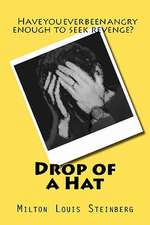Going to the Dogs: New York Review Books Classics
Autor Erich Kästneren Limba Engleză Paperback – 5 noi 2012
What’s to be done? Fabian and friends make the best of it—they go to work though they may be laid off at any time, and in the evenings they go to the cabarets and try to make it with girls on the make, all the while making a lot of sharp-sighted and sharp-witted observations about politics, life, and love, or what may be. Not that it makes a difference. Workers keep losing work to new technologies while businessmen keep busy making money, and everyone who can goes out to dance clubs and sex clubs or engages in marathon bicycle events, since so long as there’s hope of running into the right person or (even) doing the right thing, well—why stop?
Going to the Dogs, in the words of introducer Rodney Livingstone, “brilliantly renders with tangible immediacy the last frenetic years [in Germany] before 1933.” It is a book for our time too.
Din seria New York Review Books Classics
-
 Preț: 88.86 lei
Preț: 88.86 lei -
 Preț: 99.24 lei
Preț: 99.24 lei - 16%
 Preț: 79.25 lei
Preț: 79.25 lei -
 Preț: 77.73 lei
Preț: 77.73 lei -
 Preț: 124.55 lei
Preț: 124.55 lei -
 Preț: 98.73 lei
Preț: 98.73 lei -
 Preț: 83.30 lei
Preț: 83.30 lei -
 Preț: 113.45 lei
Preț: 113.45 lei -
 Preț: 102.47 lei
Preț: 102.47 lei -
 Preț: 81.20 lei
Preț: 81.20 lei -
 Preț: 174.64 lei
Preț: 174.64 lei -
 Preț: 110.73 lei
Preț: 110.73 lei -
 Preț: 119.57 lei
Preț: 119.57 lei -
 Preț: 94.01 lei
Preț: 94.01 lei -
 Preț: 85.16 lei
Preț: 85.16 lei -
 Preț: 101.24 lei
Preț: 101.24 lei -
 Preț: 182.08 lei
Preț: 182.08 lei -
 Preț: 142.67 lei
Preț: 142.67 lei -
 Preț: 90.72 lei
Preț: 90.72 lei -
 Preț: 103.29 lei
Preț: 103.29 lei -
 Preț: 113.30 lei
Preț: 113.30 lei -
 Preț: 100.59 lei
Preț: 100.59 lei -
 Preț: 126.41 lei
Preț: 126.41 lei -
 Preț: 107.40 lei
Preț: 107.40 lei -
 Preț: 174.03 lei
Preț: 174.03 lei -
 Preț: 107.44 lei
Preț: 107.44 lei -
 Preț: 89.27 lei
Preț: 89.27 lei -
 Preț: 85.34 lei
Preț: 85.34 lei -
 Preț: 90.09 lei
Preț: 90.09 lei -
 Preț: 119.36 lei
Preț: 119.36 lei -
 Preț: 99.60 lei
Preț: 99.60 lei -
 Preț: 102.25 lei
Preț: 102.25 lei -
 Preț: 127.42 lei
Preț: 127.42 lei -
 Preț: 96.27 lei
Preț: 96.27 lei -
 Preț: 85.97 lei
Preț: 85.97 lei -
 Preț: 136.91 lei
Preț: 136.91 lei -
 Preț: 161.86 lei
Preț: 161.86 lei -
 Preț: 105.17 lei
Preț: 105.17 lei -
 Preț: 88.86 lei
Preț: 88.86 lei -
 Preț: 94.83 lei
Preț: 94.83 lei -
 Preț: 118.21 lei
Preț: 118.21 lei -
 Preț: 87.20 lei
Preț: 87.20 lei -
 Preț: 95.45 lei
Preț: 95.45 lei -
 Preț: 97.50 lei
Preț: 97.50 lei -
 Preț: 111.96 lei
Preț: 111.96 lei -
 Preț: 133.18 lei
Preț: 133.18 lei -
 Preț: 100.18 lei
Preț: 100.18 lei -
 Preț: 75.23 lei
Preț: 75.23 lei -
 Preț: 91.13 lei
Preț: 91.13 lei -
 Preț: 94.67 lei
Preț: 94.67 lei
Preț: 75.74 lei
Nou
Puncte Express: 114
Preț estimativ în valută:
14.49€ • 15.74$ • 12.18£
14.49€ • 15.74$ • 12.18£
Carte disponibilă
Livrare economică 01-15 aprilie
Livrare express 15-21 martie pentru 19.13 lei
Preluare comenzi: 021 569.72.76
Specificații
ISBN-13: 9781590175842
ISBN-10: 1590175840
Pagini: 177
Dimensiuni: 129 x 203 x 12 mm
Greutate: 0.22 kg
Editura: NEW YORK REVIEW OF BOOKS
Seria New York Review Books Classics
ISBN-10: 1590175840
Pagini: 177
Dimensiuni: 129 x 203 x 12 mm
Greutate: 0.22 kg
Editura: NEW YORK REVIEW OF BOOKS
Seria New York Review Books Classics
Notă biografică
Erich Kästner (1899ߝ1974) was born in Dresden and after serving in World War I studied history and philosophy in Leipzig, completing a PhD. In 1927 he moved to Berlin and through his prolific journalism quickly became a major intellectual figure in the capital. His first book of poems was published in 1928, as was the children’s book Emil and the Detectives, which quickly achieved worldwide fame. Going to the Dogs appeared in 1931 and was followed by many other
works for adults and children, including Lottie and Lisa, the basis for the popular Disney film The Parent Trap. In 1933 the pacifist Kästner was banned from German publication and subsequently found employment as a film scriptwriter. After World War II, he worked as a literary editor and continued to write, mainly for children.
Cyrus Brooks translated works by Alfred Neumann, Friedrich Dürrenmatt, and Leonhard Frank as well as Kästner’s Emil and the Detectives, Emil and the Three Twins, and Lottie and Lisa.
Rodney Livingstone is a professor emeritus in German studies at the University of Southampton and a translator of books by Theodor W. Adorno, Max Weber, and Walter Benjamin, among others. In 2009 he was awarded the Ungar German Translation Prize of the American Translators Association.
works for adults and children, including Lottie and Lisa, the basis for the popular Disney film The Parent Trap. In 1933 the pacifist Kästner was banned from German publication and subsequently found employment as a film scriptwriter. After World War II, he worked as a literary editor and continued to write, mainly for children.
Cyrus Brooks translated works by Alfred Neumann, Friedrich Dürrenmatt, and Leonhard Frank as well as Kästner’s Emil and the Detectives, Emil and the Three Twins, and Lottie and Lisa.
Rodney Livingstone is a professor emeritus in German studies at the University of Southampton and a translator of books by Theodor W. Adorno, Max Weber, and Walter Benjamin, among others. In 2009 he was awarded the Ungar German Translation Prize of the American Translators Association.
Recenzii
“Kästner (1899-1974) had a message to convey about the crumbling of Berlin's moral standards, and he delivered it successfully….but it is Fabian himself who explains things best when he comments ironically, ‘We live in stirring times . . . and they get more stirring every day.'’” —Publishers Weekly
“Like his hero Fabian, Kästner was not a cynic as a saddened idealist; the two conditions look much the same, but the latter is more painful….Fabian is a "key novel" of the Weimar Republic in its last years. It is a notably efficient novel, with little of the metaphysical resonance of [Thomas Mann’s] Doctor Faustus or that book’s soul-searching, but offering instead a series of moral tableaux, rendered the cooler by the chapter titles, in the form of newspaper headings.” —The Times Literary Supplement
“Graceful, vivid and distinguished…a little masterpiece of pathos and calamity.” —Michael Sadleir
“Damned for its improper subject-matter, [Going to the Dogs] showed the crumbling Berlin of Christopher Isherwood’s stories with something of Isherwood’s sharp intelligence, but a far more tragic sense of implication.” —The Times Literary Supplement
“I am a great admirer of Fabian [original title] and have read it at least twice.” —Graham Greene
“Like his hero Fabian, Kästner was not a cynic as a saddened idealist; the two conditions look much the same, but the latter is more painful….Fabian is a "key novel" of the Weimar Republic in its last years. It is a notably efficient novel, with little of the metaphysical resonance of [Thomas Mann’s] Doctor Faustus or that book’s soul-searching, but offering instead a series of moral tableaux, rendered the cooler by the chapter titles, in the form of newspaper headings.” —The Times Literary Supplement
“Graceful, vivid and distinguished…a little masterpiece of pathos and calamity.” —Michael Sadleir
“Damned for its improper subject-matter, [Going to the Dogs] showed the crumbling Berlin of Christopher Isherwood’s stories with something of Isherwood’s sharp intelligence, but a far more tragic sense of implication.” —The Times Literary Supplement
“I am a great admirer of Fabian [original title] and have read it at least twice.” —Graham Greene












